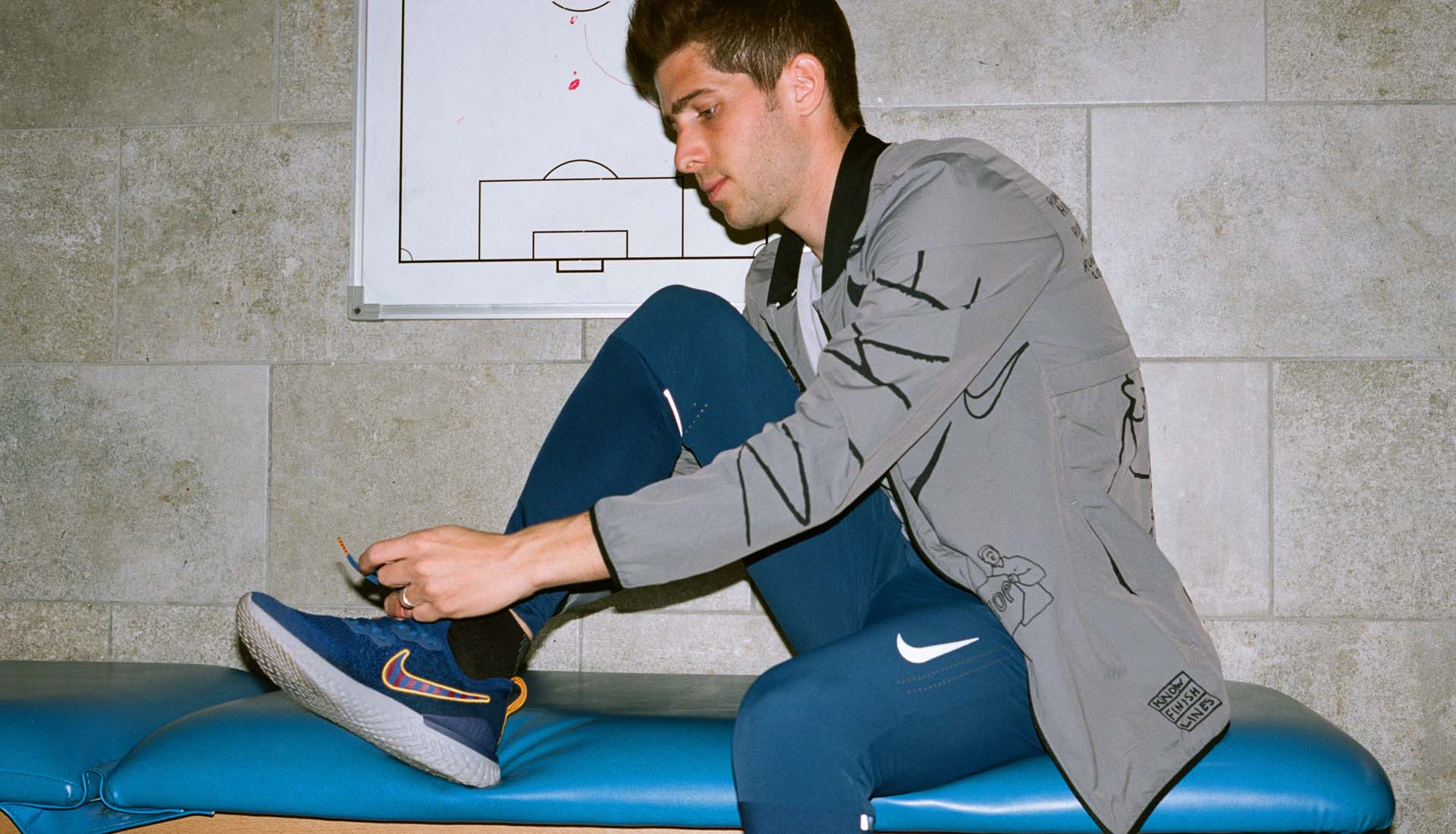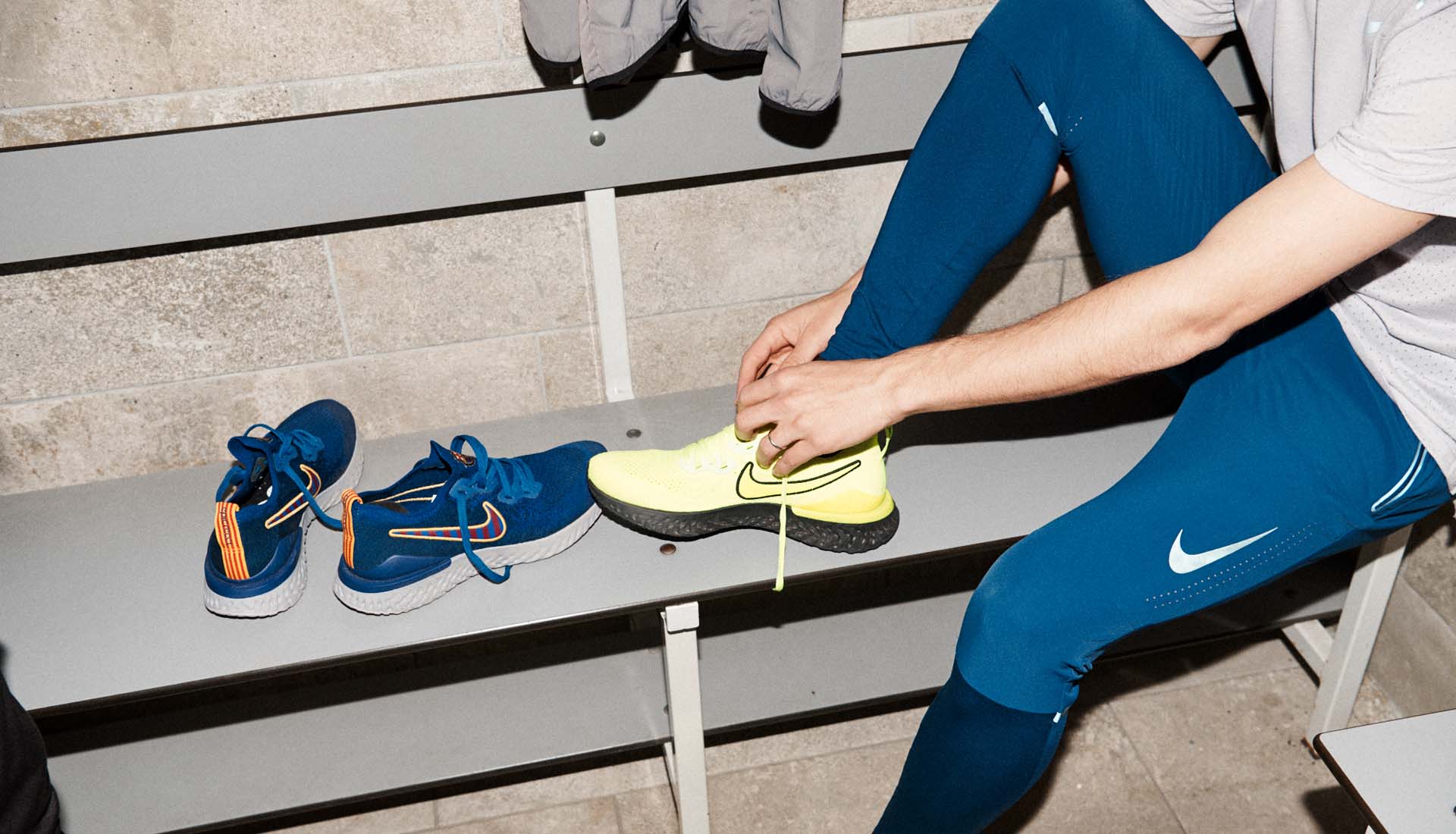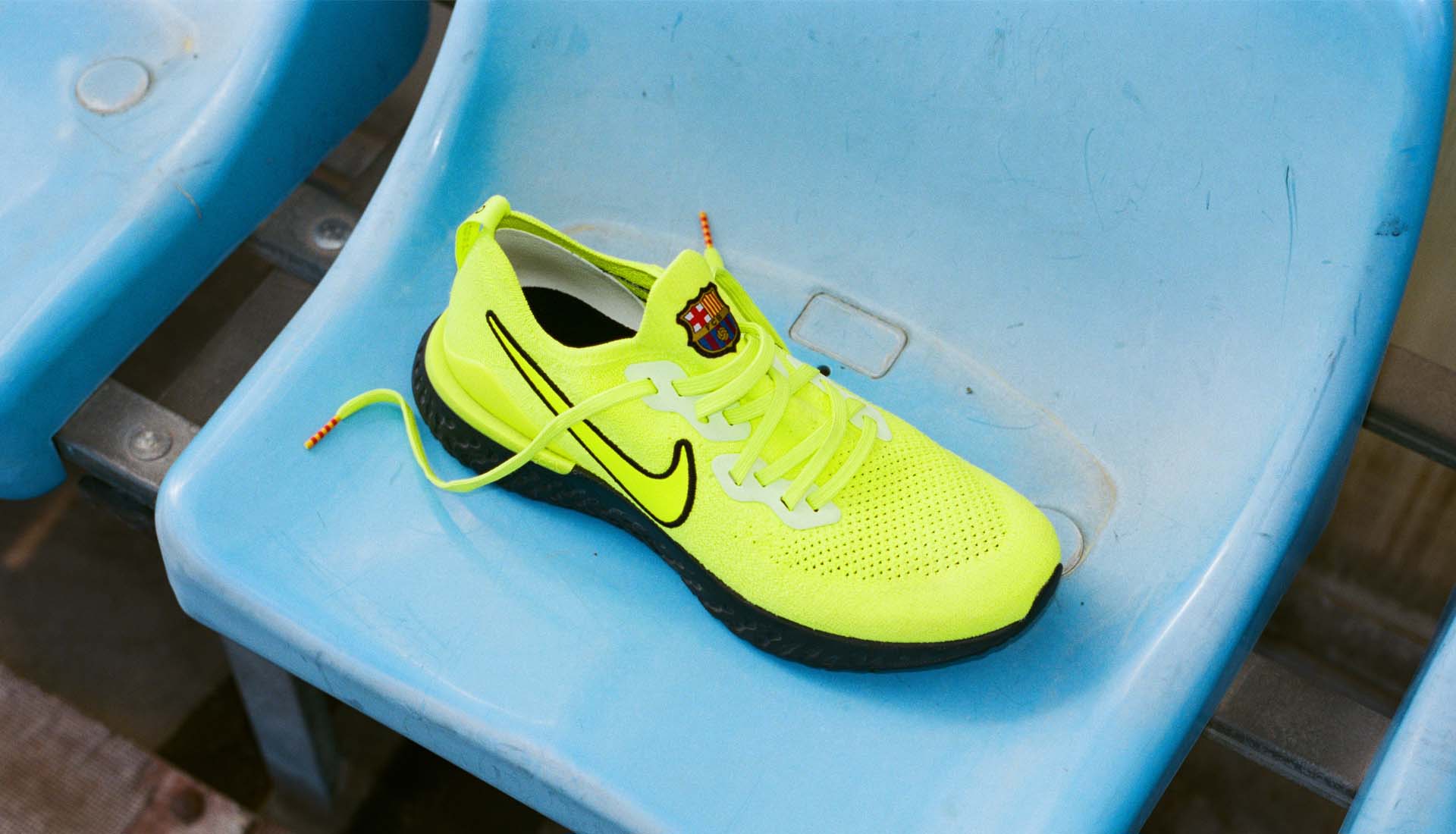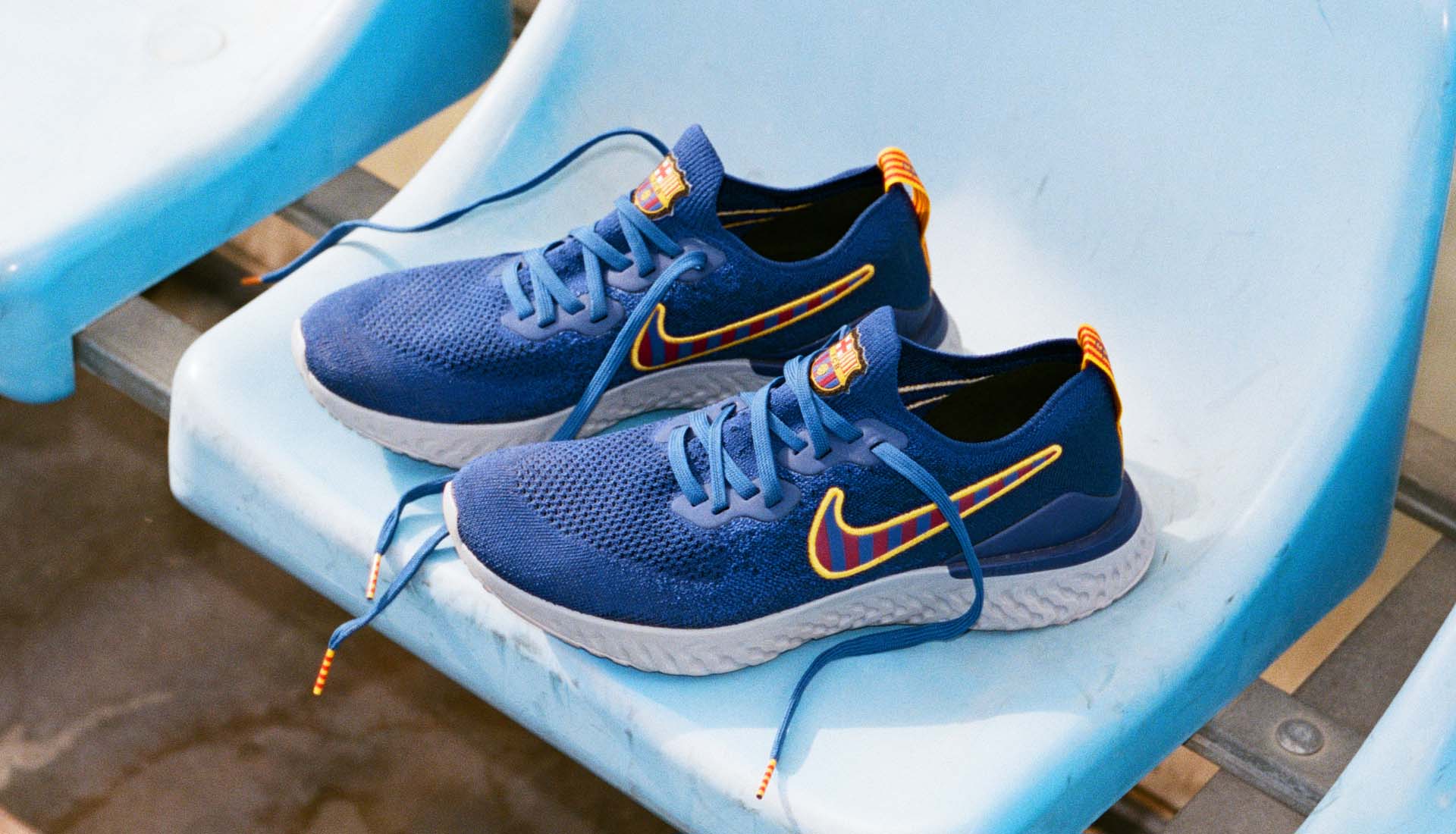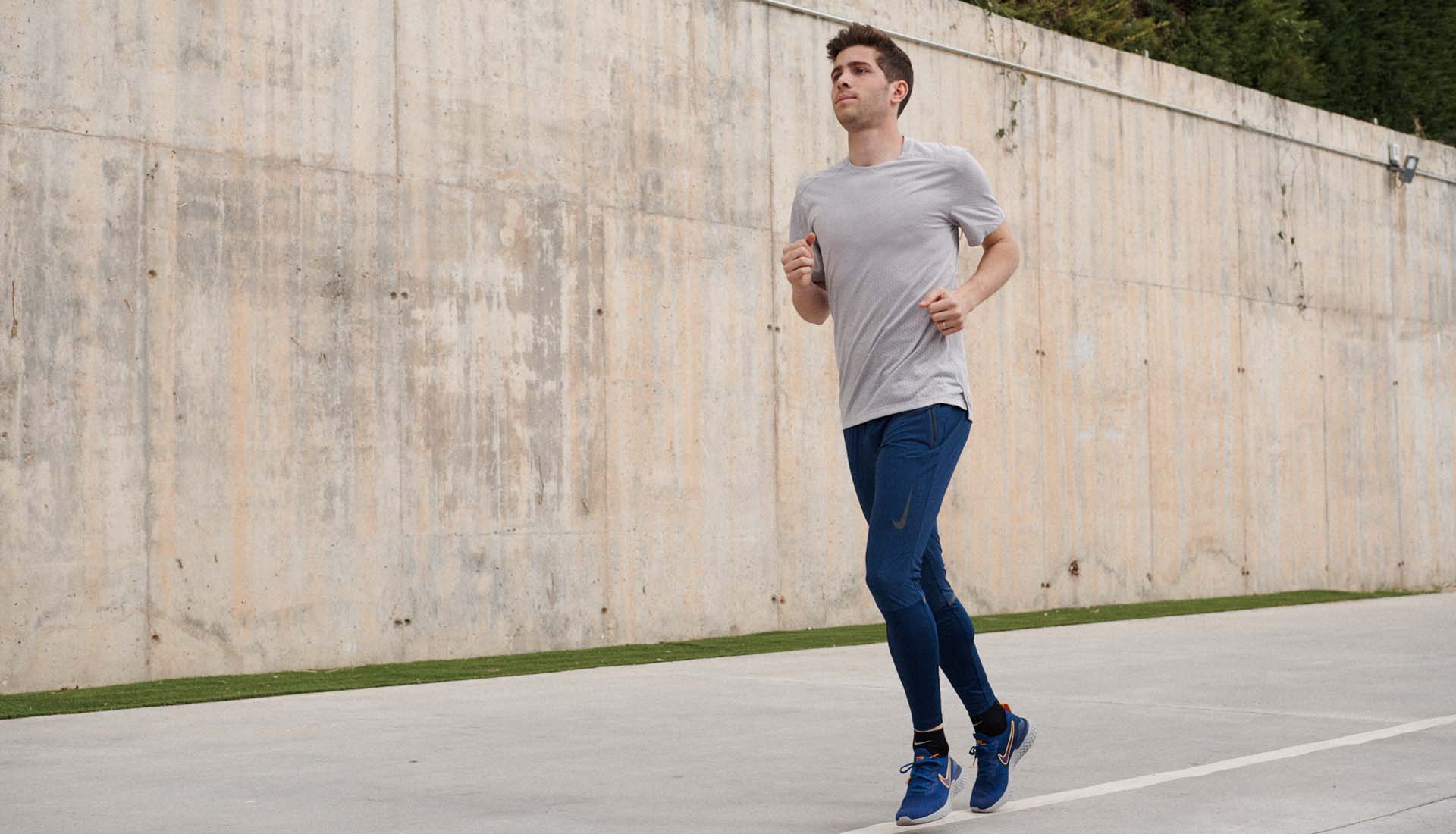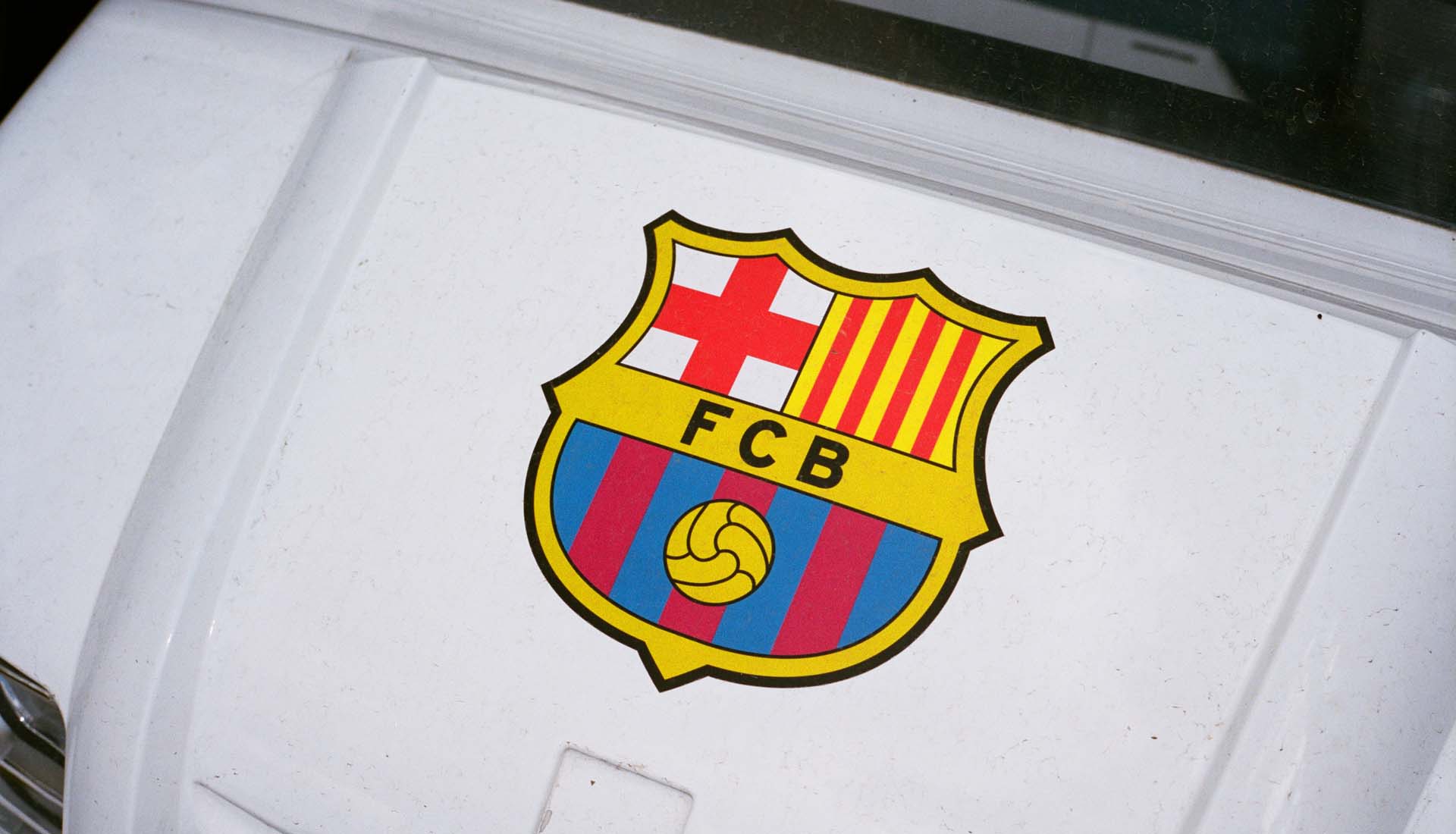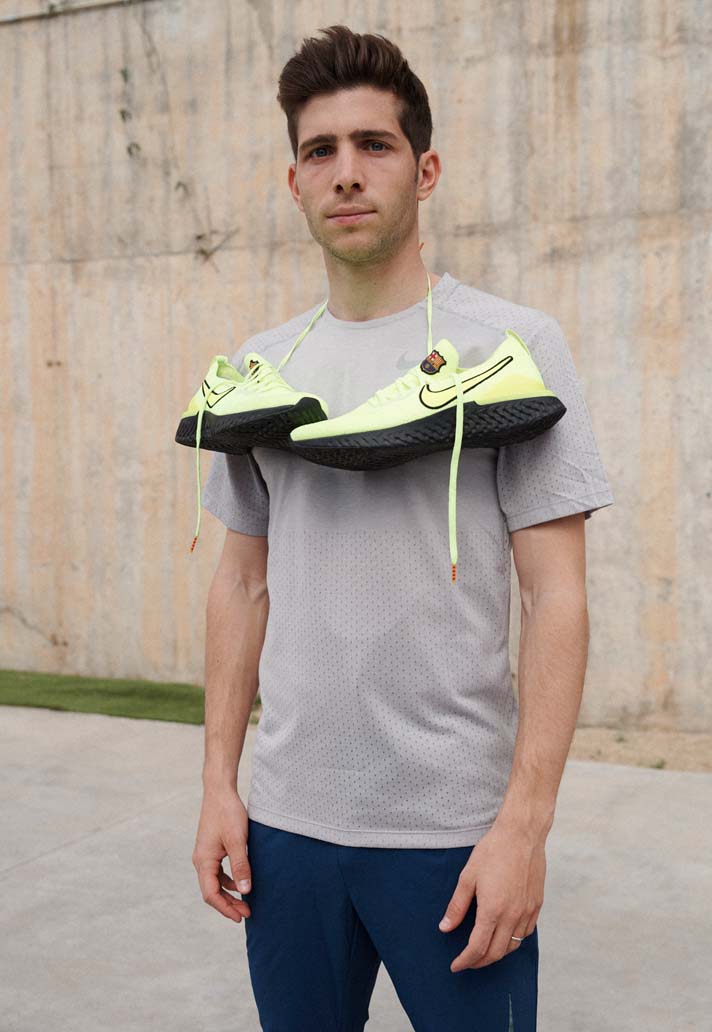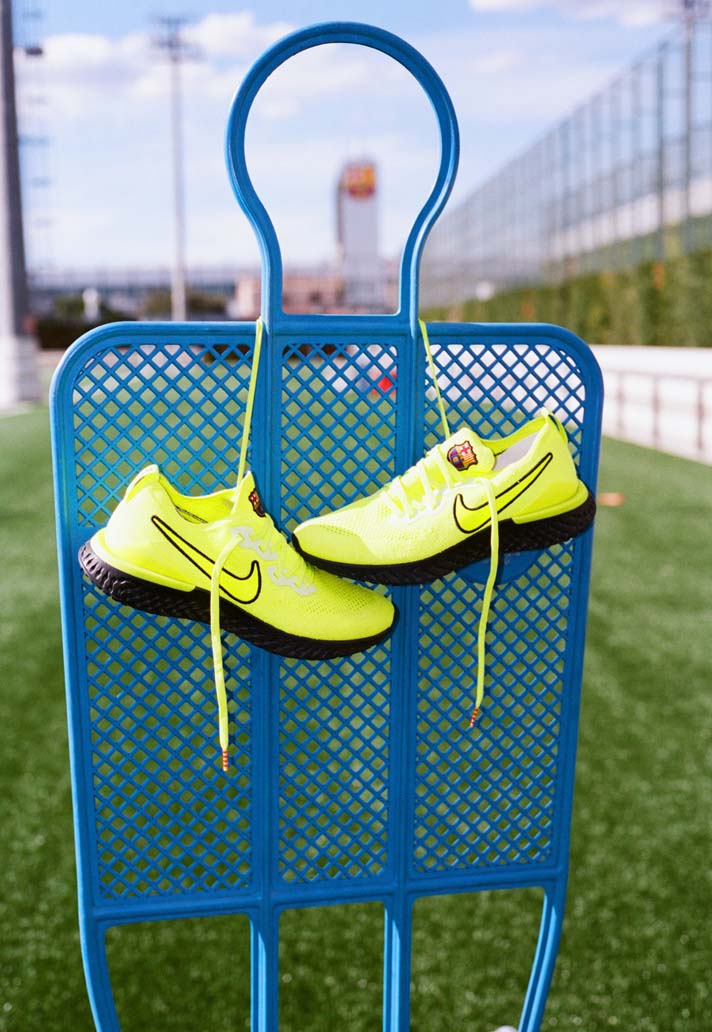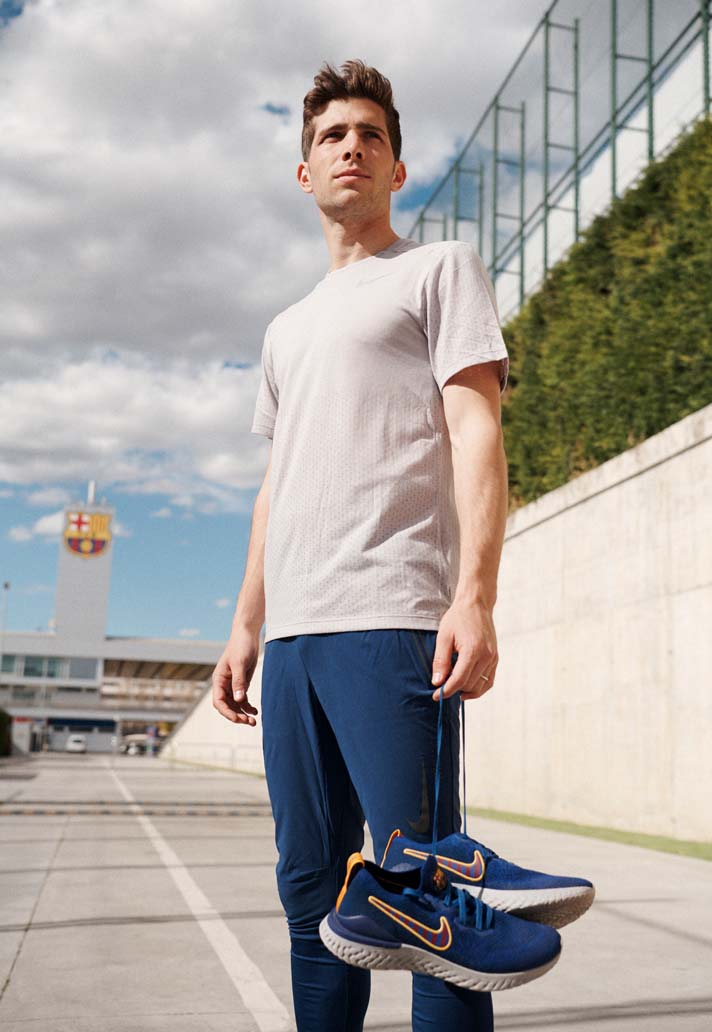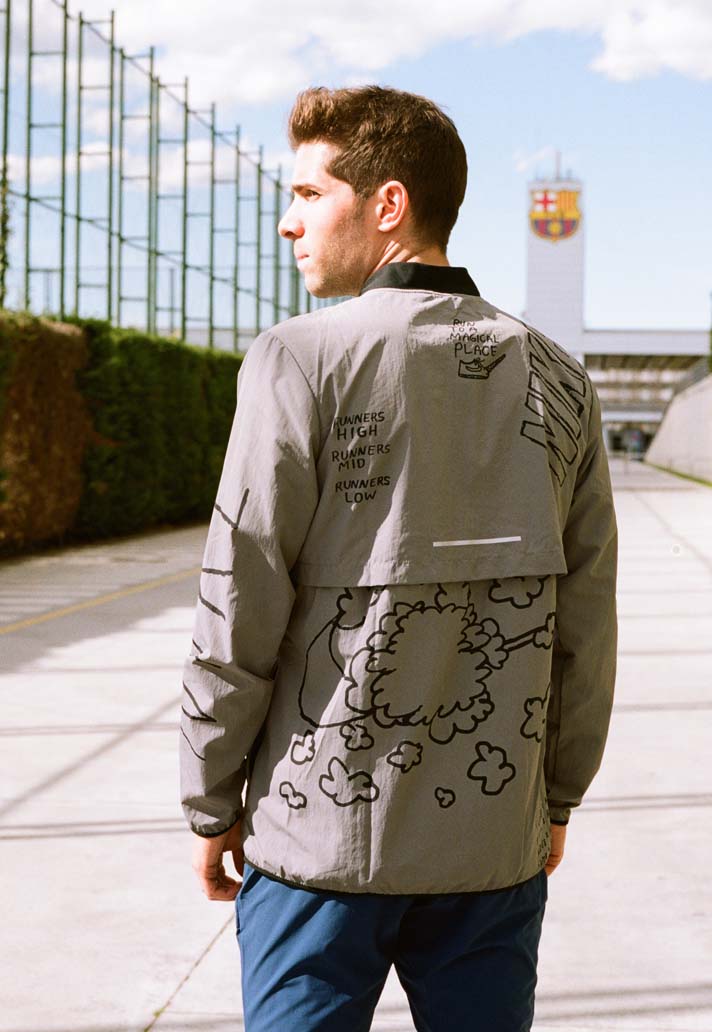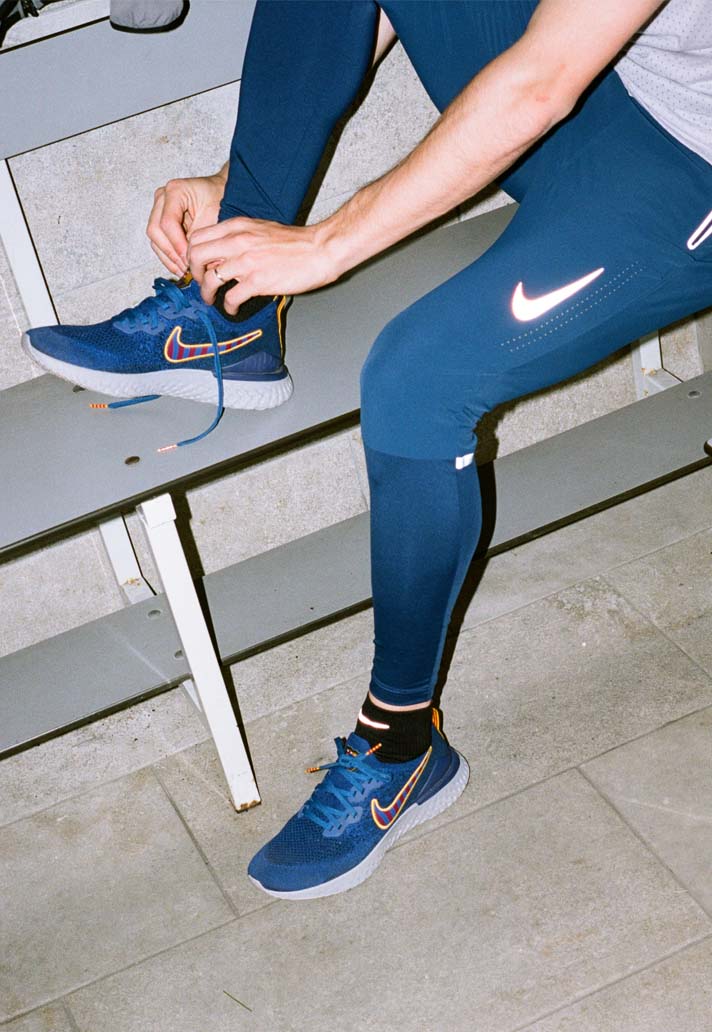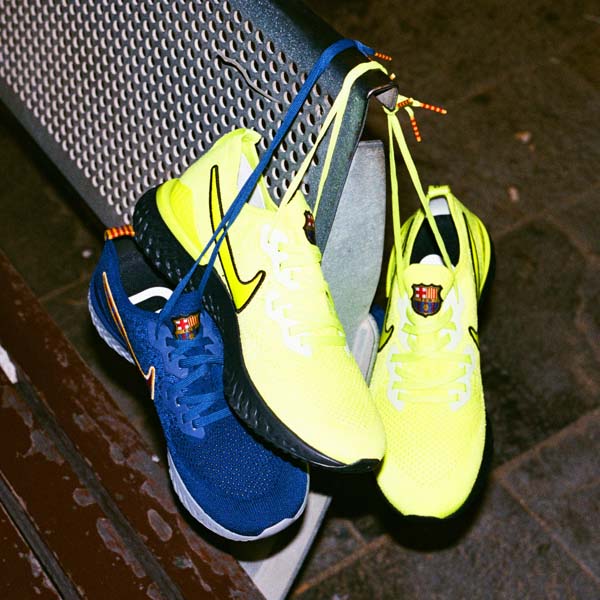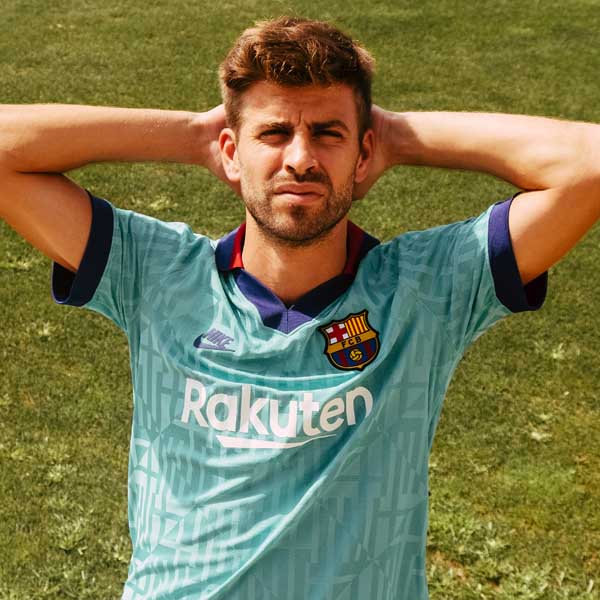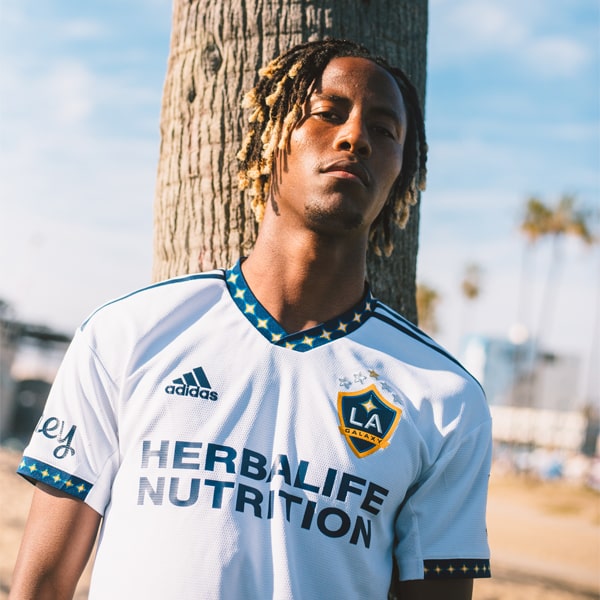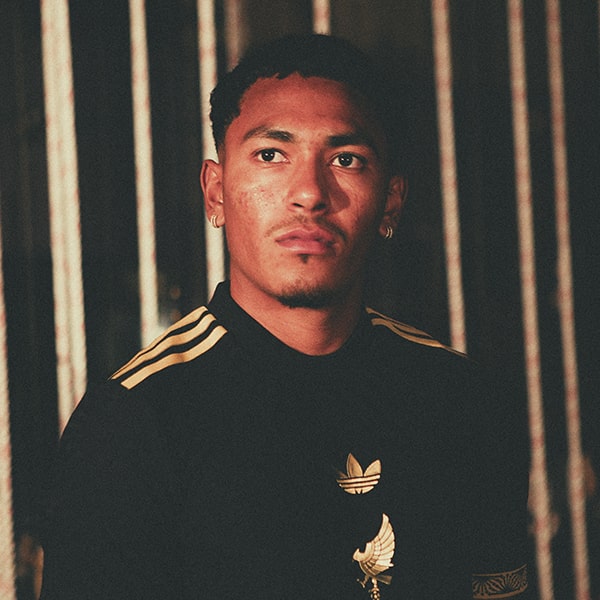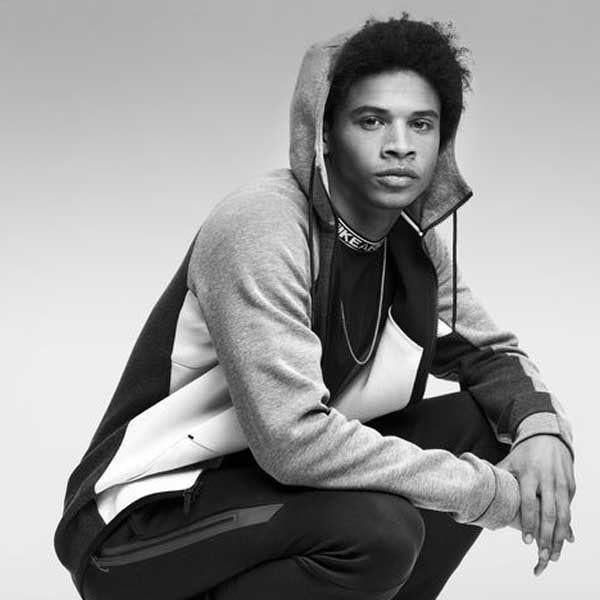Having grown up in Barcelona, Sergi Roberto is only too familiar with the running culture that is ingrained in the city. From fun runs to Marathons, there are events and running clubs available to suit all levels and abilities. But for Roberto, running is obviously a key part of his profession, and the recent release of the Nike Barcelona Epic React Flyknit 2 is right up his street, or training ground.
The Barca full back is known for his high energy performances on the pitch; it’s an integral part of his game. Ahead of the launch of the Barca branded sneakers that landed complete with the Catalan club’s colouring, we caught up with the Spaniard to find out all about life in Barcelona, from his early days in La Masia to breaking into the first team, before moving on to running and the importance of comfort and style in his stride.
Sergi, you’ve come through the ranks at Barcelona. La Masia must feel like a second home?
I joined FC Barcelona when I was 14. At that time, and until I was 16, I was living at home in Reus, so I came here every day for training and then I returned to my home with my parents. Then I moved to La Masia, where I was living and training with the rest of my team-mates. So yes, we could say that this is my home as well.
What's it like to come here every day?
I've been a FC Barcelona fan since I was a little kid. So, every day, when I come here for training and I see that big FC Barcelona badge, when I put on that Barça training shirt, it feels like it’s a dream come true.
What’s it been like growing up here?
Growing up here has been pretty intense and a lot of hard work. It hasn’t been easy. I’ve seen many team mates and friends who couldn’t make it and had to leave the club every other season. But at the same time, it is a dream come true and there are some wonderful memories.
Can you remember the feeling the first time you turned up here?
I remember when I came here to do my trials the first time. I was playing for Nastic Tarragona at that time, and I felt very nervous wearing that Barça shirt. Fortunately, everything went well and now I’m in the first team.
What’s it like to look back now as one of the four captains of the club?
This is my first year as a captain of the first team. If when I was a kid, you told me that I would be captain one day I wouldn't have believed you. But here I am, and I feel incredibly proud of it.
How hard have you had to work to break through at each stage?
It’s been a tough road because every season I saw team-mates, who I had become close friends with, released from the club. So, for us at Barça Academy, every year it was like a test. But at the same time, we all felt very proud of being here, wearing that Barça badge. Now I’ve been here for more than half of my life, and I hope there will be more many years to come.
How much does running come into your game, is it something you think about and work on?
Playing as a right back, running is a huge part of my game. Specially here at Barça, where both RB and LB are asked to attack and cover all the field all the time. It is a key aspect of our football style. And then, obviously, you must come back and defend. It is a position that's very demanding, and running is key.
Covering long distances in the elite level is almost second nature, do you look at how much you cover, and does it get competitive between players - who can cover the most ground?
After every match, our physical trainer sends me a message with all the data. How many kilometres I have run, how many sprints, which was the top speed I reached, how much time I could hold at top speed… I’m really interested in all this data because it allows me to know how I perform or if I’m in shape or not. I find it very helpful. But no, there is not a competition in the locker room to see who has run more kilometres during a match. In football what it is important is to score goals and win. To cover a large amount of distance could be key in my position, but it might be other players with different responsibilities and all of them are as important as mine in order to get the victory.
Sometimes being able to push yourself and run harder can be the difference between you and an opponent. How much do you want to come off the field knowing you’ve worked harder than the opposition?
It is usually more important to be faster than a rival than to run more kilometres than him. Especially when defending. Being faster than the opponent is what can make the difference and, ultimately, what might help the team to win.

Do you work with coaches and get advice on the running side of the game?
We’ve got some physical trainers in the team and they help me a lot to improve in my running skills. From the warm-up exercises to the specific drills in the gym in order to improve my speed. Yes, gaining speed and being quicker is something I work on.
How has your running style changed over time in your career?
When you are a kid running is not a thing you pay attention to. All you want is to play football for fun, and running is a part of it I guess. Then you arrive in a professional environment like here and you start to realise how important is. How important is to be as quick as you can. Those small details are what makes a difference when you play at the highest level.
How demanding has the game been on your body and how has running helped you come back from injury?
Injuries are the worst part of football by far. So, obviously, running, and physical training, helps you to avoid them. It is really important to be in the best shape when you are a professional footballer.
Are you someone who enjoys putting the miles in on the training ground, away from the ball work?
I do enjoy running. Normally, on the day before of a match, I do some extra work after the training session. I run a bit more than my team-mates because I know I need my legs to be active because the very next day, during the game, I’m going to have to run that extra mile to help the team win.
What do you listen to when you run?
When running, I like to listen to up-beat music. This helps me to disconnect a bit and helps me to reach my goals for that day.
How do you motivate yourself to train each day? While it’s a privilege, it must be taxing?
As a pro footballer, coming here to train is our job. So, every time I come here, I know I have to give 100%. Normally, we train between one and two hours per day, which is not that much time to be honest. So, to me, my duty is to put all my energy in that training session. It's a huge honour to play for Barça, so that is my main motivation.
Going back to La Masia, can you talk us through your training regime? How does the break down look on a daily basis?
When I was living at La Masía, I was living with my team-mates. Our daily routine started in the morning, when we went to school. Then we had a bit of time to rest after lunch. We used to spend the afternoon at the gym and then, in the evening, we had a training session to prepare for the following match.
This is where you come to work. Is it motivating to come in and see the pitches, the facilities and have they changed much in your time at the club?
Training facilities here at FC Barcelona are incredible. I’m sure Barça has the best facilities and pitches. It is easy to feel motivated to training everyday when you arrive here and see all of this. My first year at Barça was the first year the club moved to this Ciudad Deprotiva facilities, and despite some minor changes and improvements, they look the same. Before I joined the club the team trained in the pitches next to the Camp Nou, but I’ve always been here.
What about changes to the way you train, has that changed as more technology comes into the game?
Technology is huge in football nowadays. Now we train with a GPS and we’ve got all the data instantly. This way, the manager and the coaches can know what the state of every footballer is. Who may need a rest or who is performing especially well.
What about when normal training is done, do you like to stay on a bit longer and work on anything particular?
After training, the most important part is stretching and working out in the gym. As I said before, avoiding injuries is one of the most important things for a footballer.
Have you noticed the benefits from the extra hours you put in?
I’ve learnt how to stretch, how to eat well and also how important it is to work out and improve my core. People tend to think that for a footballer the most important part are the legs, but some of them forget how important a strong core is for our job because it helps you to avoid pelvic injuries, which are quite frequent. Also, sit ups helps you to be quicker and not get tired easily.
What’s Barcelona like as a city for people who like to get out and run the streets?
Barcelona is one of the cities in which you can see more people running on the streets, especially on the Diagonal street or by the sea. This is probably because of the weather. It is always more fun to go out and run when it is warm outside rather than if it's raining or windy.
What do you think of the Nike React as a shoe?
This Nike React shoes feels very comfy and are very fashionable too. Especially these shoes with the Barça badge on them, of course!
Are there fundamental things you look for in a shoe like this?
What I look most on a shoe is that if its comfortable or not. That is what it is important to me, especially if we are talking about running shoes. I’m always interested in knowing which new shoes are coming out and I try to test every new technology.
It’s important to look good to help you feel good, are you a fan of the design?
This Nike React is obviously a performance shoe, but they also have a lot of style. These are shoes I could use daily with no problems.
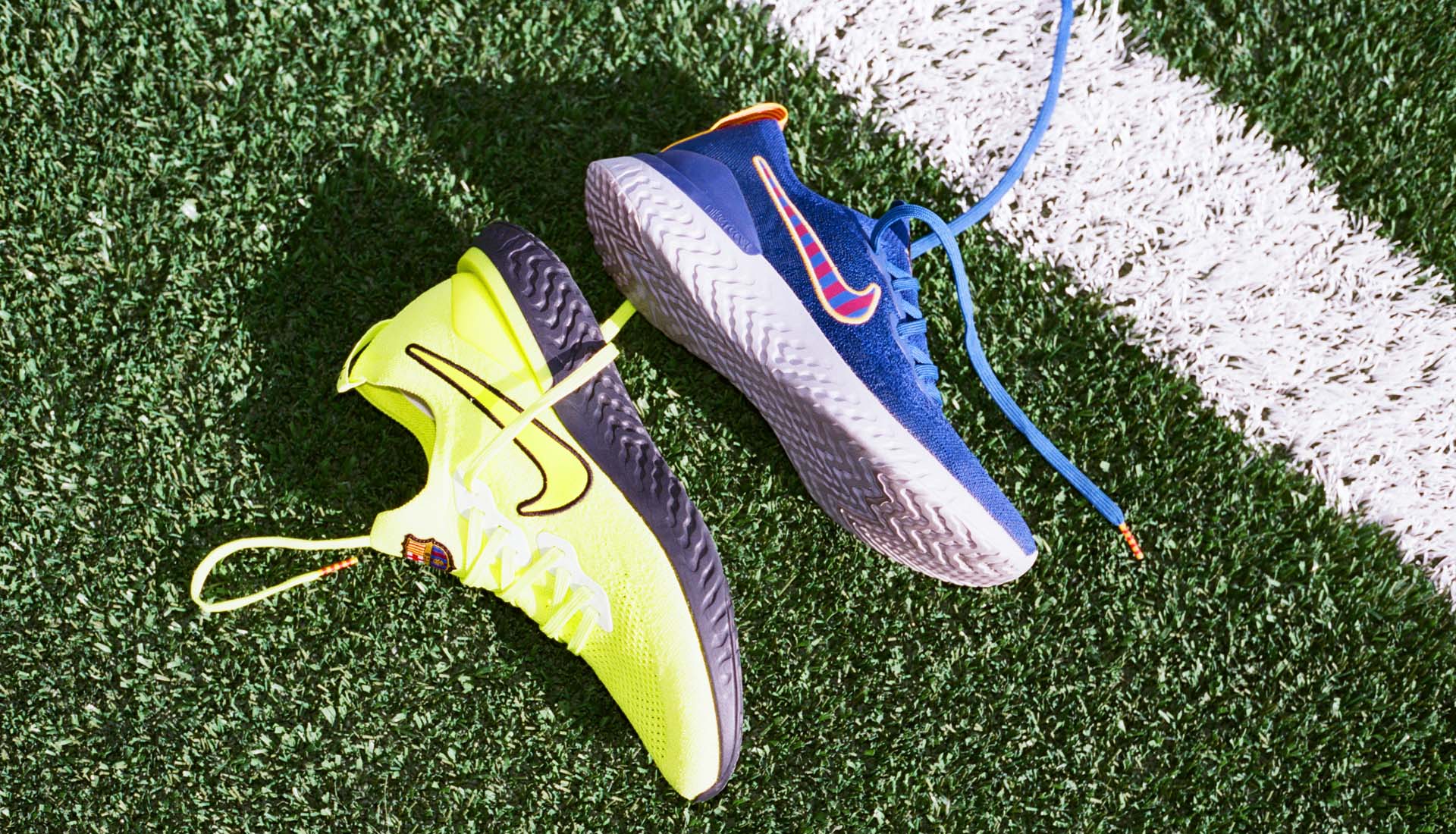
Take a closer look at the Barcelona x Nike Epic React Flyknit 2 sneakers here.
